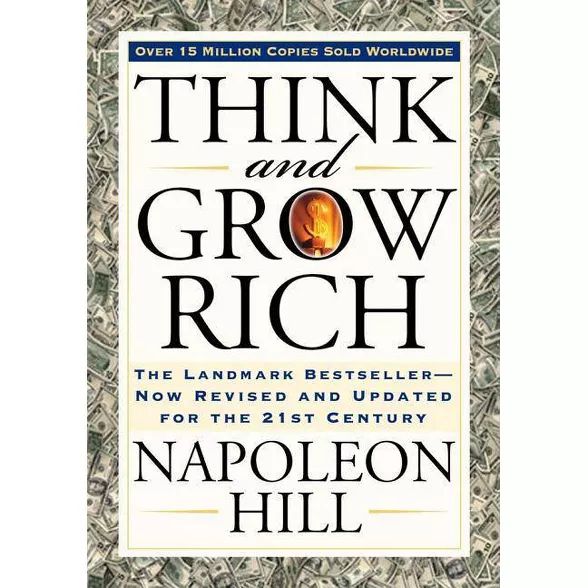
Click Here to Earn $5-200 In Free Stock!
10 Best Personal Finance Books for Financial Freedom
Daniel Williams
10/22/20243 min read


10 Best Personal Finance Books
1. The Total Money Makeover by Dave Ramsey
In this influential book, Dave Ramsey delineates a step-by-step plan for financial transformation. Key takeaways include the seven baby steps, emphasizing debt elimination, savings, and wealth-building. This book serves as a motivational guide for individuals seeking financial discipline.
2. Rich Dad Poor Dad by Robert Kiyosaki
Robert Kiyosaki shares lessons learned from his two father figures—his biological father and the father of his best friend. It underscores the importance of financial literacy, investing in assets, and the distinction between passive and active income. The book inspires readers to rethink their approach to money and investments.
3. The Intelligent Investor by Benjamin Graham
As a cornerstone of investment philosophy, Benjamin Graham's classic focuses on value investing principles. Graham emphasizes the importance of thorough analysis and long-term investment strategies, providing timeless lessons for readers eager to navigate the stock market effectively.
4. You Are a Badass at Making Money by Jen Sincero
Jen Sincero combines personal anecdotes with practical advice to inspire readers to overcome limiting beliefs about money. With a focus on mindset and self-empowerment, the book encourages readers to embrace opportunities for financial growth.
5. The Barefoot Investor by Scott Pape
This Australian bestseller offers straightforward budgeting techniques and savings tips tailored for everyday Australians. Scott Pape's approach focuses on creating financial security through simple, actionable steps that resonate with a broad audience.
6. Why Didn't They Teach Me This in School? by Cary Siegel
Cary Siegel addresses the financial knowledge gap left by traditional education. He provides practical advice on budgeting, investing, and debt management, equipping readers with essential skills for real-world financial success.
7. Financial Freedom by Grant Sabatier
Grant Sabatier offers insights into achieving financial independence early in life. With a focus on saving and investing strategies, this book encourages readers to redefine their relationship with money and prioritize their financial goals.
8. The Millionaire Next Door by Thomas J. Stanley and William D. Danko
The authors present research-based findings on the habits of wealthy individuals. Key concepts include frugality, lifestyle choices, and the importance of living below one's means. This book challenges common perceptions of wealth and reveals the behaviors that lead to financial success.
9. Money: Master the Game by Tony Robbins
Tony Robbins interviews financial experts and distills their wisdom into actionable strategies. The book covers diverse topics, including asset allocation and investment strategies, aiming to empower readers with the tools to take control of their financial destinies.
10. The Simple Path to Wealth by JL Collins
JL Collins offers advice rooted in his experience of achieving financial independence through investing in low-cost index funds. This book simplifies complex investment concepts, making it accessible for readers new to personal finance, and encourages them to prioritize saving and investing for long-term wealth accumulation.
Next Steps
As we have explored in this blog post, the journey toward financial literacy is both enriching and empowering. The 10 personal finance books highlighted not only offer valuable insights into managing money but also serve as foundational texts for building wealth and achieving financial independence. Each book presents unique perspectives and strategies, underscoring the significance of continuous learning in the realm of personal finance.
To effectively enhance your financial knowledge and skills, it is recommended that readers select a title from our curated list and begin applying its principles in real life. Whether it's budgeting, investing, or understanding the psychology of money, each book provides actionable steps to improve one's financial landscape. Remember, the key to financial success lies in consistently implementing the lessons learned from these resources.
Moreover, readers who wish to delve even deeper into financial education can explore a variety of additional resources. Online courses on platforms such as Coursera and Udemy offer extensive modules covering diverse topics, from basic budgeting to advanced investment strategies. Additionally, financial podcasts such as "The Dave Ramsey Show" or "ChooseFI" can provide ongoing insights and discussions about current financial trends and personal anecdotes that may resonate with your financial journey.
Lastly, community support groups, both online and offline, can play a crucial role in your financial education. Engaging with like-minded individuals can foster motivation, accountability, and shared learning experiences. In conclusion, taking the initiative to educate yourself about personal finance is a fundamental step toward achieving your financial goals. By implementing the knowledge gained from these books and supplemental resources, you will be better equipped to create a prosperous financial future.
